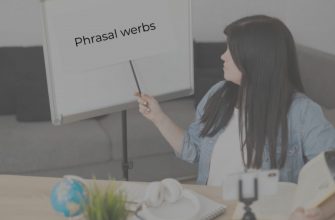Инфинитив – неопределенная форма глагола – с частицей to будет использоваться в следующих случаях:
Для объяснения цели / причины действия (infinitive of purpose)
Например:
- I went to London to study English.
- She went to the bakery to buy some bread.
Иногда перед инфинитивом может стоять in order или so as:
- He did it in order to help her.
Инфинитив также используется после союзов how, what, who, where, when, whether, особенно при использовании таких глаголов, как know, decide, ask, learn, remember и т.д.
К примеру:
- I didn’t know what to say.
- He doesn’t know where to go.
- She hasn’t decided yet what to buy.
- Tell me how to get there, please.
Неопределённую форму глагола с частицей to также будем использовать после прилагательных, как в этих примерах:
- I am so happy to see you!
- He was surprised to hear that.
- She is afraid to go there.
- It’s too late to go there.
- It was too cold to go jogging.
- It’s easy to learn English.
Инфинитив можно использовать после порядковых числительных, например: first, second или после слов next, last:
- He is always the first to come to the parties.
- I was the last to leave.
Инфинитив может использоваться также после неопределённых местоимений something, nothing, somewhere, anyone, nobody и т.д. для пояснений и конкретизации
Например:
- Let me grab something to eat.
- It’s boring. There’s absolutely nothing to do!
- There’s no one to be seen.
Инфинитив также используется после следующих глаголов:
| advise | They advised me not to pay cash. |
| afford | Max can’t afford to buy this car. |
| agree | She agreed to give a presentation at the meeting on Friday. |
| allow | The boss allowed me to leave work early today. |
| appear | He appears to get better. |
| arrange | July arranged to stay with her aunt in Florida. |
| ask | I asked him to help. |
| be able | I’m sure John will be able to get the tickets for us. |
| beg | He begged her to stay but she refused. |
| choose | Max has chosen to leave for Oxford. |
| claim | She claimed to be a Russian princess. |
| decide | We decided to go out for dinner. |
| demand | He demanded to speak to the manager. |
| deserve | He deserves to have a better life. |
| enable | The scholarship enabled Max to study abroad. |
| encourage | My parents always encouraged me to ask questions. |
| expect | He expected to fail the exam. Everybody expected Max to give a presentation. |
| force | You can’t force me to make a decision. |
| forget | Don’t forget to turn off the lights and lock the door. I forgot to turn my mobile off. |
| help | He helped to clean the living room. He helped me to clean the living room. |
| hope | Mary hopes to pass the exam. |
| intend | We intended to visit London. |
| invite | The Browns invited us to go away for the weekend. |
| learn | I want to learn to drive. |
| manage | He managed to get 2 tickets for the concert. |
| mean | I meant to call you, I’m sorry I didn’t. |
| need | I need to go to the pharmacy. |
| offer | Max offered to give Mary a lift to the airport. |
| persuade | He persuaded me to come to the party. |
| plan | She plans to go on holiday to Greece next year. |
| prepare | The students prepared to take the test. The teacher prepared the students to take the test. |
| pretend | He pretended not to see me. |
| promise | He promised to pay me back, but he hasn’t done it yet. |
| recommend | He recommended me to take some cash. |
| refuse | The guard refused to let them enter the building. |
| remember | Remember to buy a present for Aunt Mary. |
| remind | Remind me to post this letter, will you? |
| seem | He seemed to be disappointed with the test results. |
| start | The baby started to cry. |
| teach | Mrs. Rose taught me to play the piano. |
| tell | He told the kids to be quiet. |
| tend | She tends to be quite shy. |
| try | Ben’s trying to repair the car himself. |
| wait | I’ll wait to see what will happen next. |
| want | I want to attend the concert. I want him to attend the concert, too. |
| warn | They warned us not to eat local food which might upset our stomachs. |
| would like | I’d like to have a bigger house. |
Использовано:School фото создан(а) freepik – ru.freepik.com








